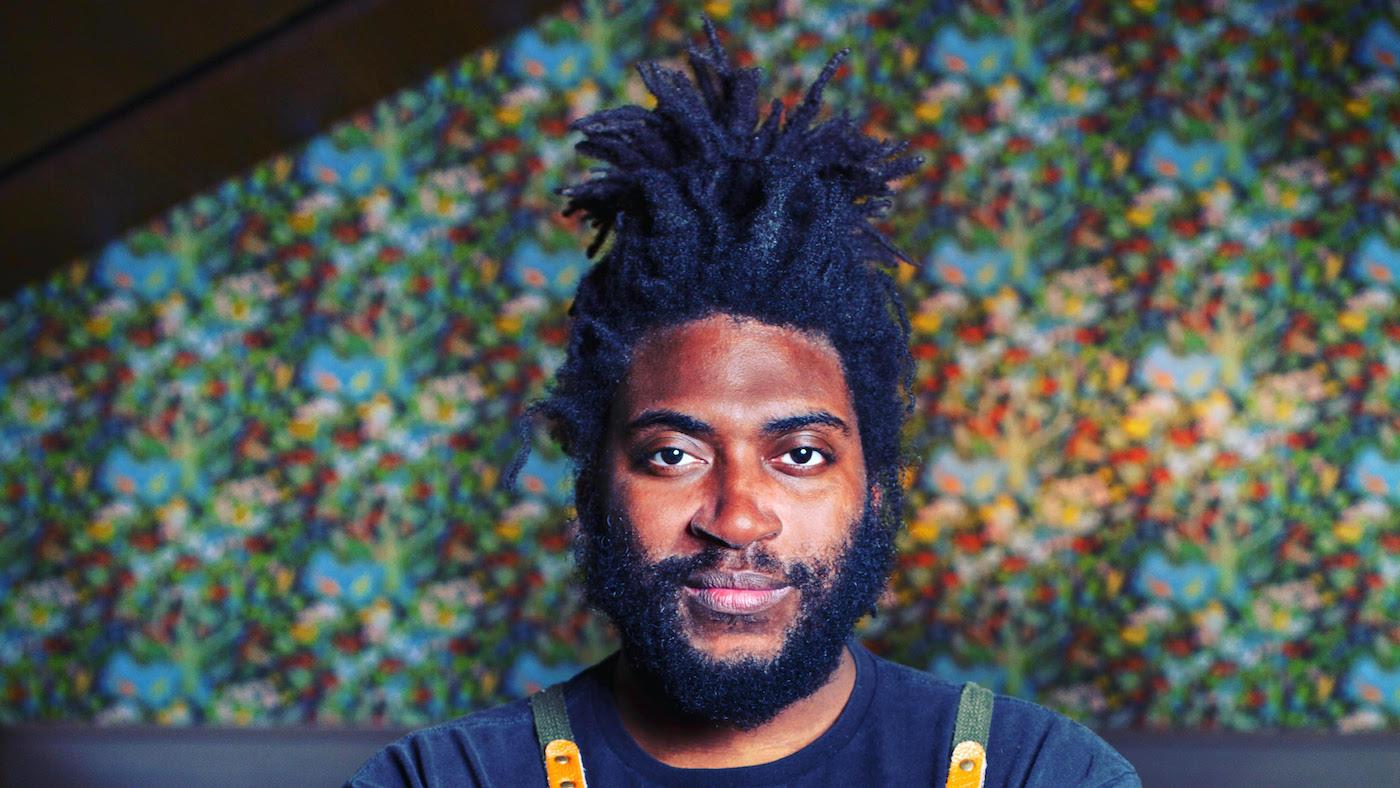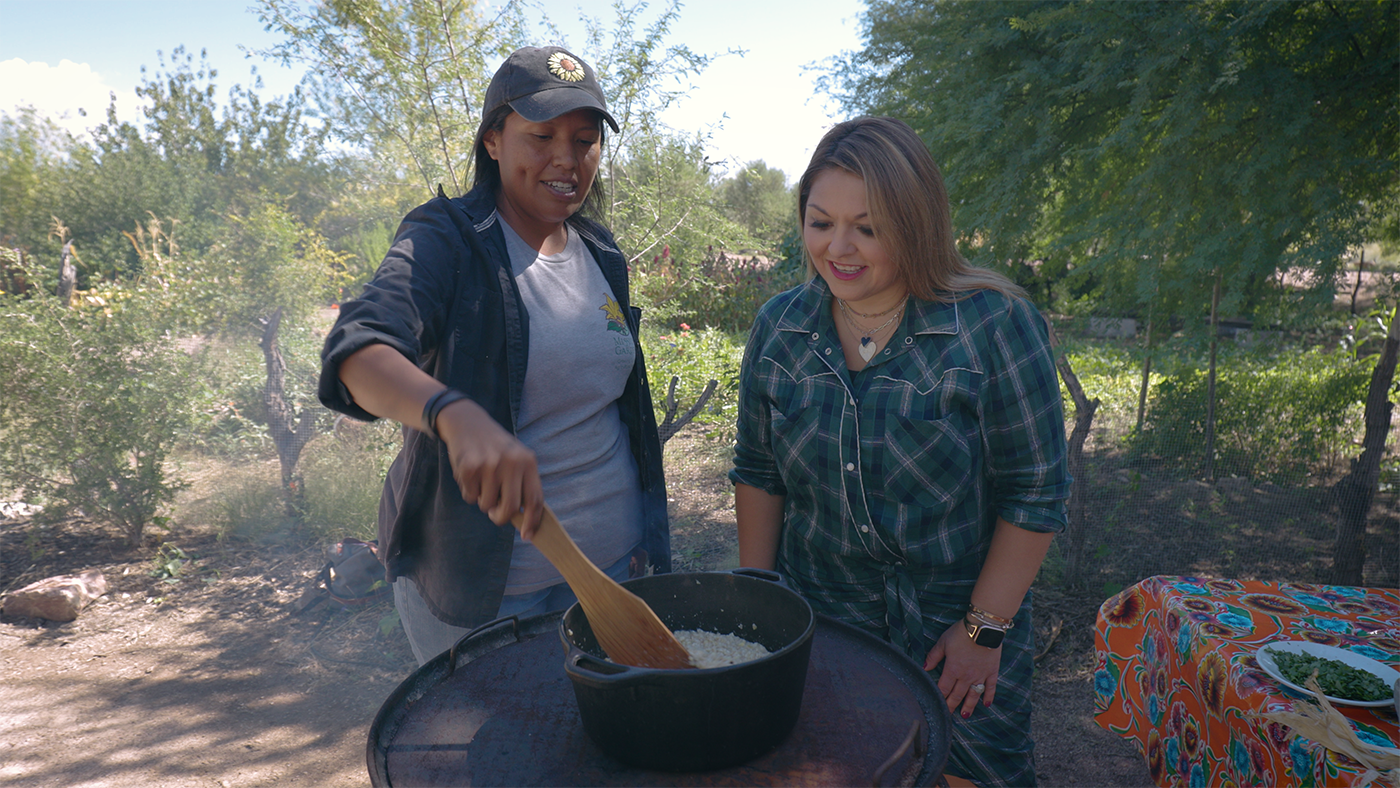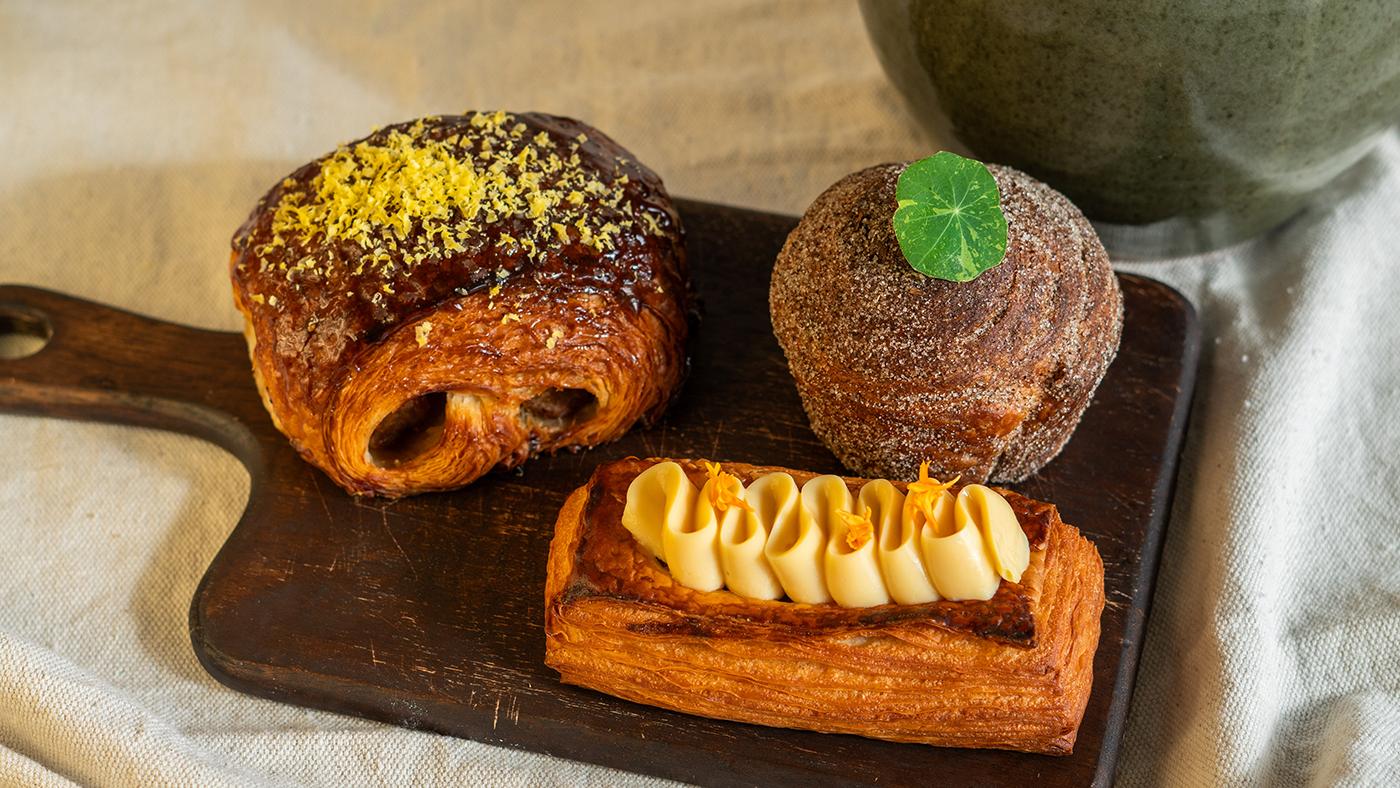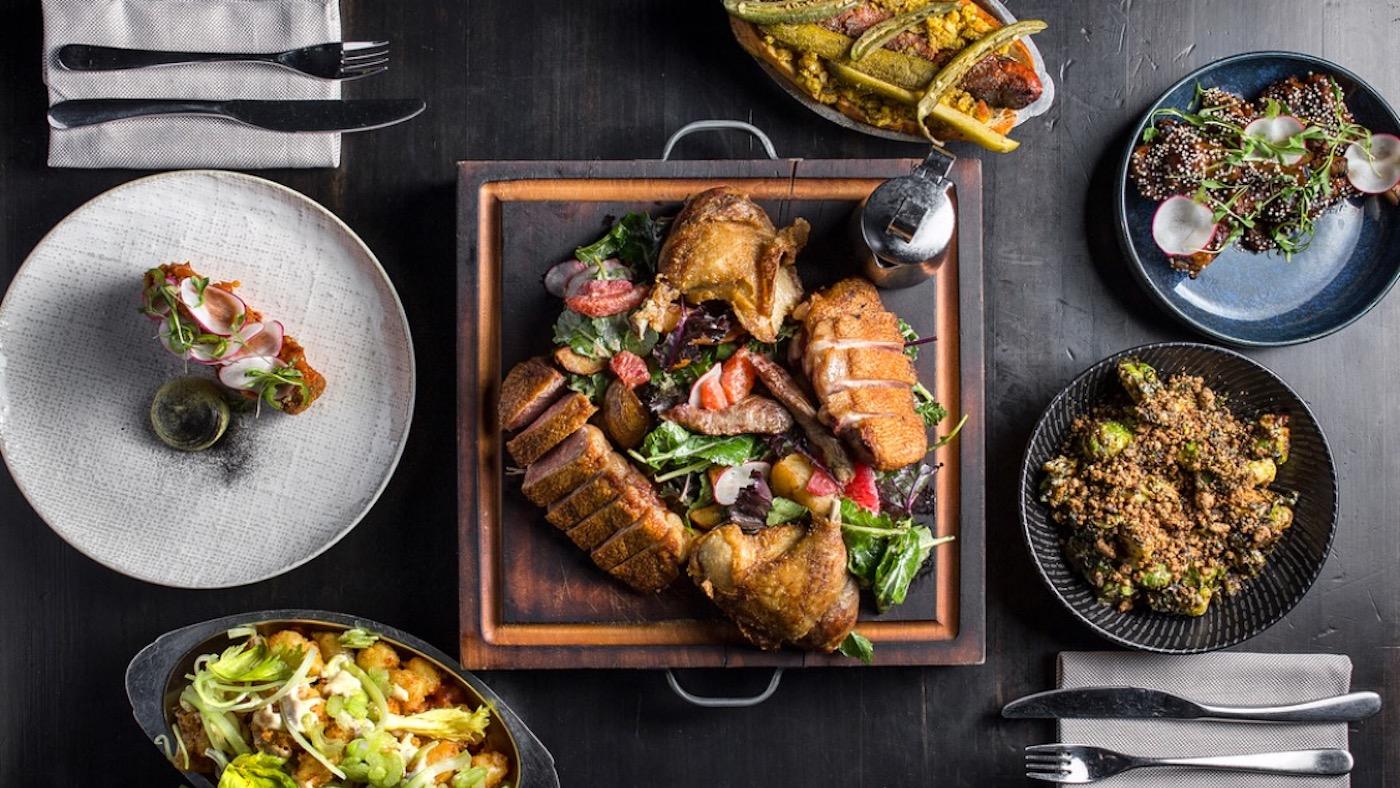A Rising Chef Comes to Chicago to Lead a New Restaurant in an Acclaimed Space
Daniel Hautzinger
February 2, 2023

Get more recipes, food news, and stories by signing up for our Deep Dish newsletter.
Iliana Regan left her acclaimed Chicago restaurant Elizabeth to run a tiny bed-and-breakfast (-and-tasting-menu-and-drinks) called Milkweed Inn in the northern woods of Michigan’s Upper Peninsula. Christian Hunter of Atelier, the new restaurant that will take over Elizabeth’s space in Lincoln Square this month, is making the opposite move: from coolly secluded restaurant to refined urban hideaway.
Their reverse trajectories belie a similar approach to food: both chefs are deeply rooted in the produce, products, and producers of the area in which they cook, as well as in their own life experiences. Regan adds an extra emphasis on foraged ingredients; Hunter expands the localism by taking inspiration from the food of surrounding communities. “I think food is more than just an expression of oneself,” he says. “It’s definitely of an environment.”
Beginning February 22, Hunter will begin channeling a new environment, when he starts as executive chef at Atelier with a fresh tasting menu. The restaurant officially opens on February 4 with a brief, sold-out residency by Regan herself, who has also just released her second book, Fieldwork: A Forager’s Memoir, via Evanston’s Agate Publishing, after completing an MFA.
In 2021, Regan sold Elizabeth to Tim Lacey, who had worked at her lauded but short-lived restaurant Kitsune before moving to Elizabeth and then shepherding it through the pandemic. Lacey ran the restaurant with Chef Ian Jones, who had also come from Kitsune, before Jones decided to move on. Elizabeth, which was named after Regan’s late sister, closed at the end of 2022. “With Ian going, it felt like, this is a sign, it’s time to move on,” Lacey says. “It had a really great long run. I’m hugely grateful for everything that Chef Regan has done, but it was time to get out from under her shadow and try to do my own thing.”
Atelier will inherit Elizabeth’s staff and kitchen, while the dining space is undergoing a “cosmetic redo,” according to Lacey.
Lacey “didn’t have any sort of style or aesthetic in mind” in searching for Atelier’s chef. “If it wound up being classical French, great, if it wound up being, I don’t know, this Bosnian-Basque mash-up, great,” he says. Instead, he was “looking for somebody who I could get excited about and get behind and support to do what they love, what they’re good at.”
By coincidence, Lacey found a chef whose priorities matched some of Regan’s. “I think that what I put on a plate—which is really focused on utilizing local products, but trying to be inventive and creative with it—I just feel like it made sense in that building, in that location, where that type of food was already being done,” Hunter says. “So it felt almost like a natural evolution to make this step.”
“I was definitely aware of Chef Regan, but I was not aware until getting more background information how badass chef was,” he says. “Let’s be very, very honest: Iliana’s a great chef, and Ian’s a great chef as well. It’s a hell of a one-two punch to follow up.”
Whereas Regan’s food is thoroughly Midwestern—she grew up in Indiana before cooking in Chicago and now Michigan—Hunter has spent much of his burgeoning career in the eastern United States. He attended culinary school in upstate New York before cooking at a couple “luxury boutique hotels” in the Northeast. Wanting to “see the other side of food, that wasn’t necessarily luxury, but more accessible,” he moved to Charleston, where he became devoted to working with local farmers and using their produce at the height of its season, especially at the proudly local Sorghum & Salt.
He took that approach to Community Table in Connecticut as executive chef. His work there just led to being included as a semifinalist for a James Beard Award for Best Chef: Northeast.
“I really wanted to see what we could do with what we had locally and get people excited about using what’s around them year-round,” he says. “It’s easy to use butternut squash when it first hits September, but when you’re in midwinter, those are the dishes that people want to be excited about. How do you get past the first five dishes that everyone does and then do something fun and exciting?”
Hunter is eager to discover the produce that Chicago, as a crossroads of the Midwest, has to offer—as well as the local communities and dining scene. “I definitely want to celebrate the different nationalities and flavors and everything that makes a place a place, but also honor and use local products,” he says. “I want my food to speak about all of these things that make food food, and where we are in that moment, and who’s making the food, and how that really affects the food that we eat. The food that we’re putting out on a plate [at Atelier] is going to be representative of my community and myself, and how I interpret American food in my way.”
"American food" is encompassing to Hunter. You can find deli influences on his opening menu at Atelier (pastrami spice, whitefish salad), Ethiopian spices (a raw lamb dish), and Japanese flavors (a delightfully American ice cream sandwich flavored with toasted rice and furikake), among others. He's even already drawing on Chicago traditions: a short rib is served with giardiniera.
Black chefs are still a rarity at the upper levels of the food industry, so Hunter also hopes to “be an example for anyone who doesn’t see their self being represented, or their food being represented, or maybe just they want to see something different,” he says, being sure to note that “there are examples of amazing Black chefs and I would never want to not mention that. There are chefs out there that don’t necessarily get the same coverage.”
“I’m not necessarily supposed to be in that position, but I’ve worked really hard and been helped along the way and I’ve got to work under some great chefs,” he says, noting that he grew up in “humble beginnings” in Lexington, Kentucky with six siblings and a single mother. “[At] each place that I’ve worked throughout my career, I’ve been able to get closer to what I want to put on a plate and what the food is speaking to me.”
Atelier represents the next step, a place where he can shape a new restaurant from the start—and he has Lacey’s backing. “My goal right now is to support Christian,” Lacey says. “I was looking for somebody whose time had come, somebody who was ready for a break. So my goal right now is just to support him and do everything I can to get him the attention I think he deserves.”







